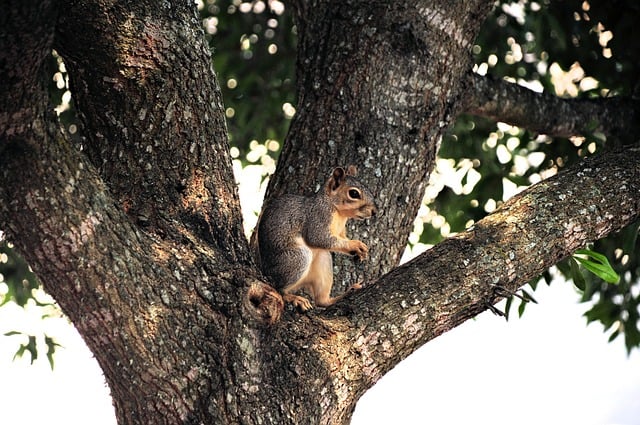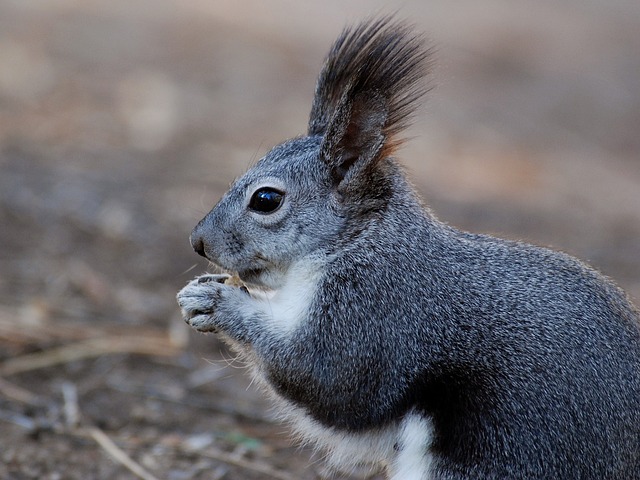Rodent Risks and Control Measures in Catalina Foothills: Protecting Families and Pets in Tucson Homes
The Catalina Foothills area of Tucson requires residents to be proactive about rodent control Tucso…….

The Catalina Foothills area of Tucson requires residents to be proactive about rodent control Tucson due to the high risk of rodents carrying diseases like Salmonella and Lyme disease. It's crucial for homeowners to seal entry points, manage waste properly, and employ effective rodent control measures, whether through professional services or non-toxic alternatives that safeguard children and pets. Given Tucson's climate and the local ecology, a customized approach to rodent management is necessary to protect public health and maintain a safe living environment. Residents must stay vigilant, recognizing the importance of preventative actions against potential infestations that could transmit diseases such as Hantavirus pulmonary syndrome, Salmonella, and other pathogens. Regular inspections and immediate action are key to managing these risks effectively in the Catalina Foothills region.
In the serene yet diverse habitats of Catalina Foothills, a pressing issue calls for attention. The presence of rodents poses significant health risks to children and pets, necessitating informed action and effective rodent control measures in Tucson homes and gardens. This article sheds light on the risks associated with these creatures and provides guidance on safeguarding our youngest and most furry community members from potential hazards. Understanding the intricacies of rodent behavior and the importance of proactive rodent control Tucson strategies is crucial for maintaining a safe and healthy environment. Join us as we explore practical approaches to mitigate these risks, ensuring the well-being of every inhabitant of this beautiful region.
- Understanding the Rodent Risks in Catalina Foothills: A Call for Effective Rodent Control in Tucson Homes and Gardens
- Safeguarding Children and Pets from Potential Health Hazards Posed by Rodents in the Catalina Foothills Environment
Understanding the Rodent Risks in Catalina Foothills: A Call for Effective Rodent Control in Tucson Homes and Gardens

In the Catalina Foothills region of Tucson, Arizona, residents face a unique set of challenges related to rodent health risks that pose significant concerns for both children and pets. The area’s environment, with its diverse habitats, provides ample opportunities for rodents to thrive. However, this proximity to wildlife can inadvertently bring these pests into close contact with domestic environments. Homeowners in Tucson must be vigilant against infestations, as rodents like rats and mice can carry diseases harmful to humans and animals, such as Salmonella and Lyme disease. The risk is not merely confined to direct exposure; rodent droppings and urine can contaminate food and water sources, leading to potential health crises. Therefore, implementing effective rodent control measures in Tucson homes and gardens is paramount. These measures should encompass both preventative strategies, such as sealing entry points and proper waste management, and responsive actions, including the use of professional-grade rodenticides or non-toxic alternatives that are safe for pets and children. The local climate and ecology necessitate a tailored approach to rodent control Tucson, ensuring the well-being of families and their furry companions while maintaining the balance of the natural environment. It is essential for residents to recognize the importance of proactive rodent management not only to protect their health but also to safeguard the tranquility and safety of their homes in the Catalina Foothills.
Safeguarding Children and Pets from Potential Health Hazards Posed by Rodents in the Catalina Foothills Environment

In the Catalina Foothills, a region known for its natural beauty and diverse ecosystem, residents, particularly those with young children and pets, must be vigilant about rodent control Tucson. Rodents such as rats and mice can pose significant health risks through their droppings, which may contain harmful bacteria like Salmonella and Hantavirus pulmonary syndrome. These pathogens can be transmitted to both humans and pets through direct contact or contaminated food and water sources. It’s crucial to maintain cleanliness, seal potential entry points into homes, and monitor for signs of infestation. Effective rodent control Tucson measures are essential to mitigate these risks, as rodents can proliferate in areas with ample food sources and shelter, potentially leading to outbreaks. Engaging professional pest control services familiar with the local environment can provide targeted solutions, ensuring that both children and pets remain safe from the potential health hazards associated with rodent activity in the region. Regular inspections and prompt treatment of any rodent activity are key strategies for safeguarding the health and well-being of all family members, including the much-loved pets, against the threats posed by these small yet formidable pests.
In light of the concerns raised regarding rodent activity in the Catalina Foothills, it is clear that heightened vigilance and effective rodent control measures are crucial for safeguarding the health and well-being of children and pets in Tucson. The findings from this study underscore the necessity for homeowners and local authorities to implement sustainable rodent control strategies, which not only protect domestic animals but also mitigate potential health risks associated with rodent infestations. By prioritizing rodent control Tucson can ensure a safer environment for all residents, reducing the likelihood of disease transmission and property damage. It is imperative that communities work collaboratively to address this issue promptly and effectively.







